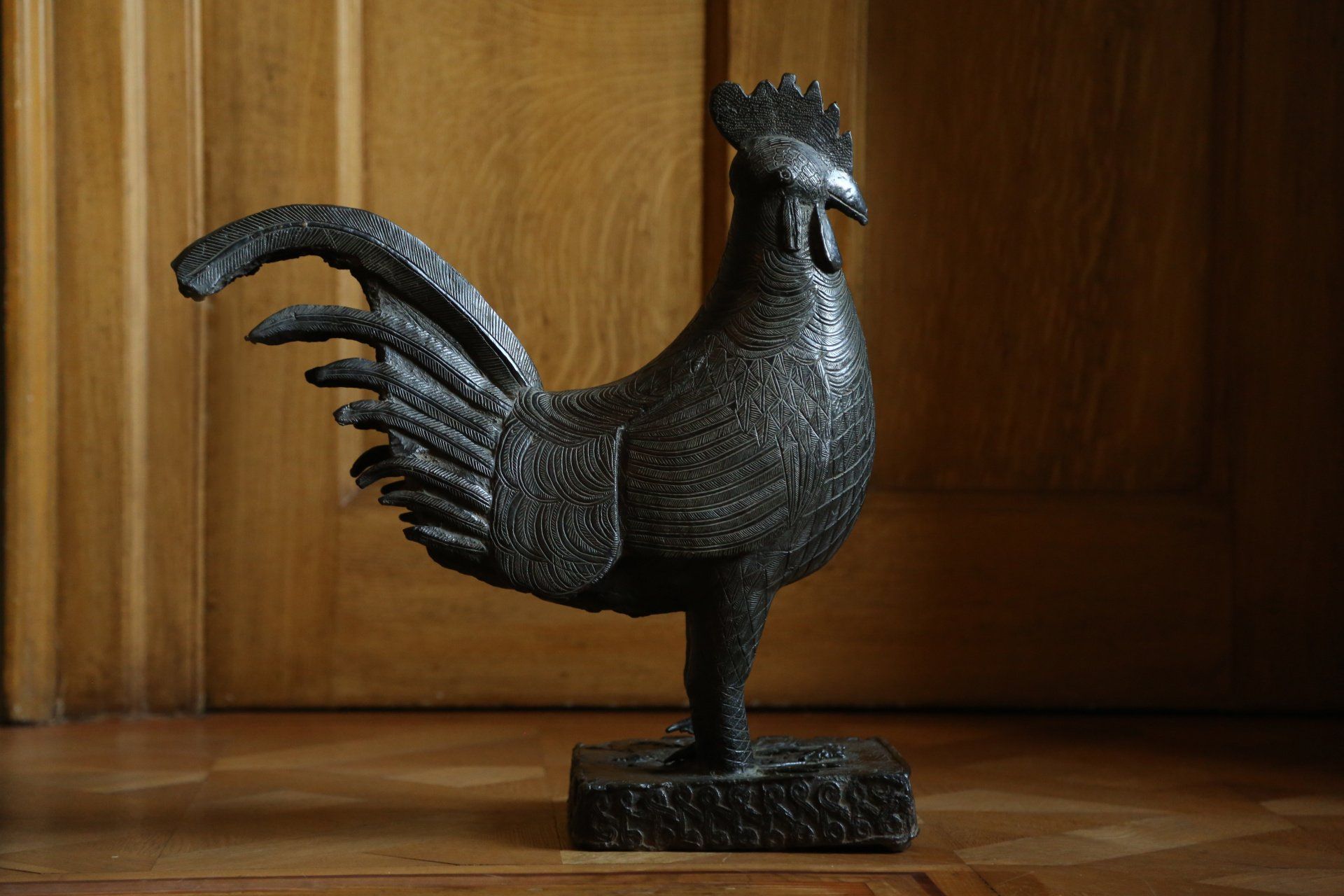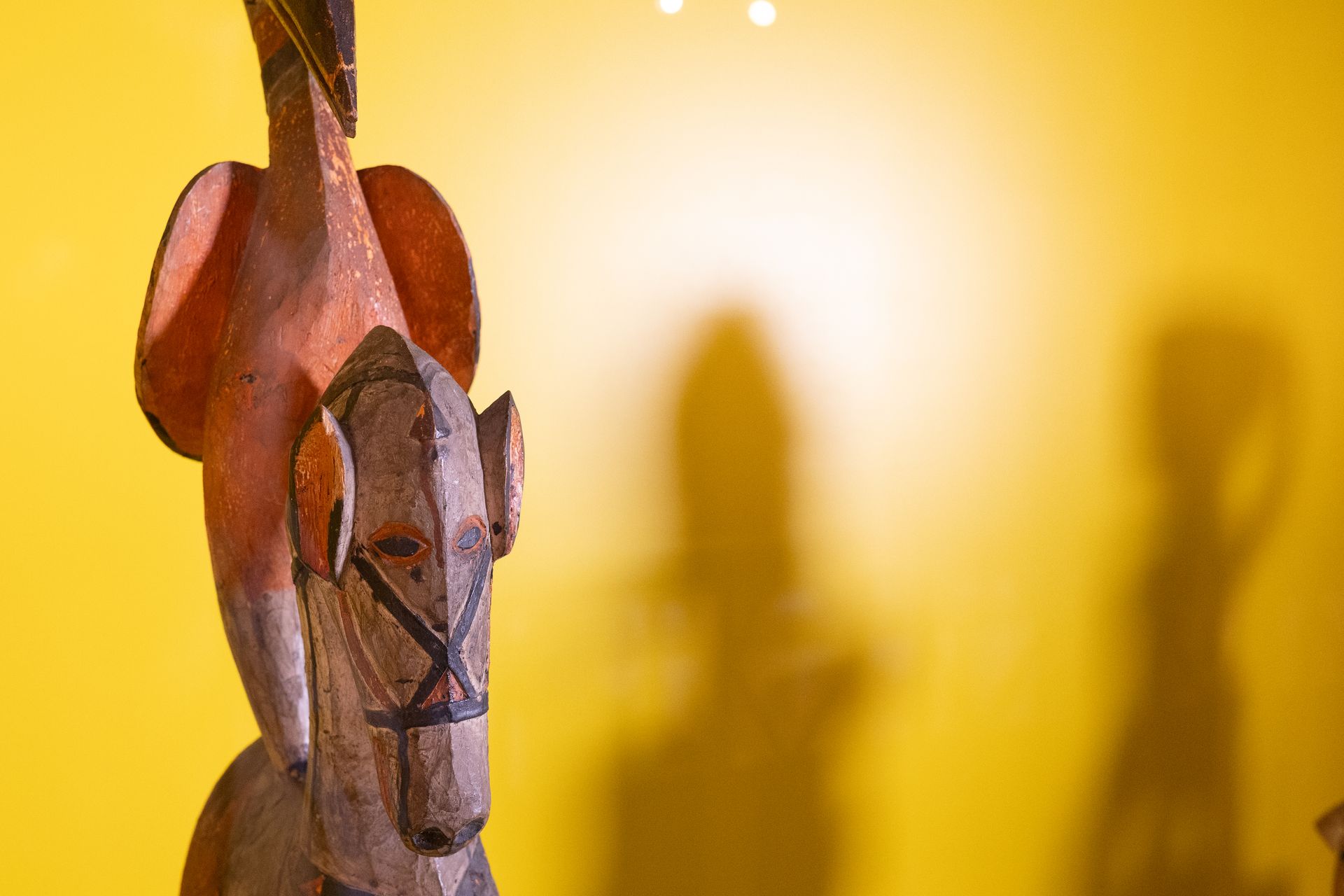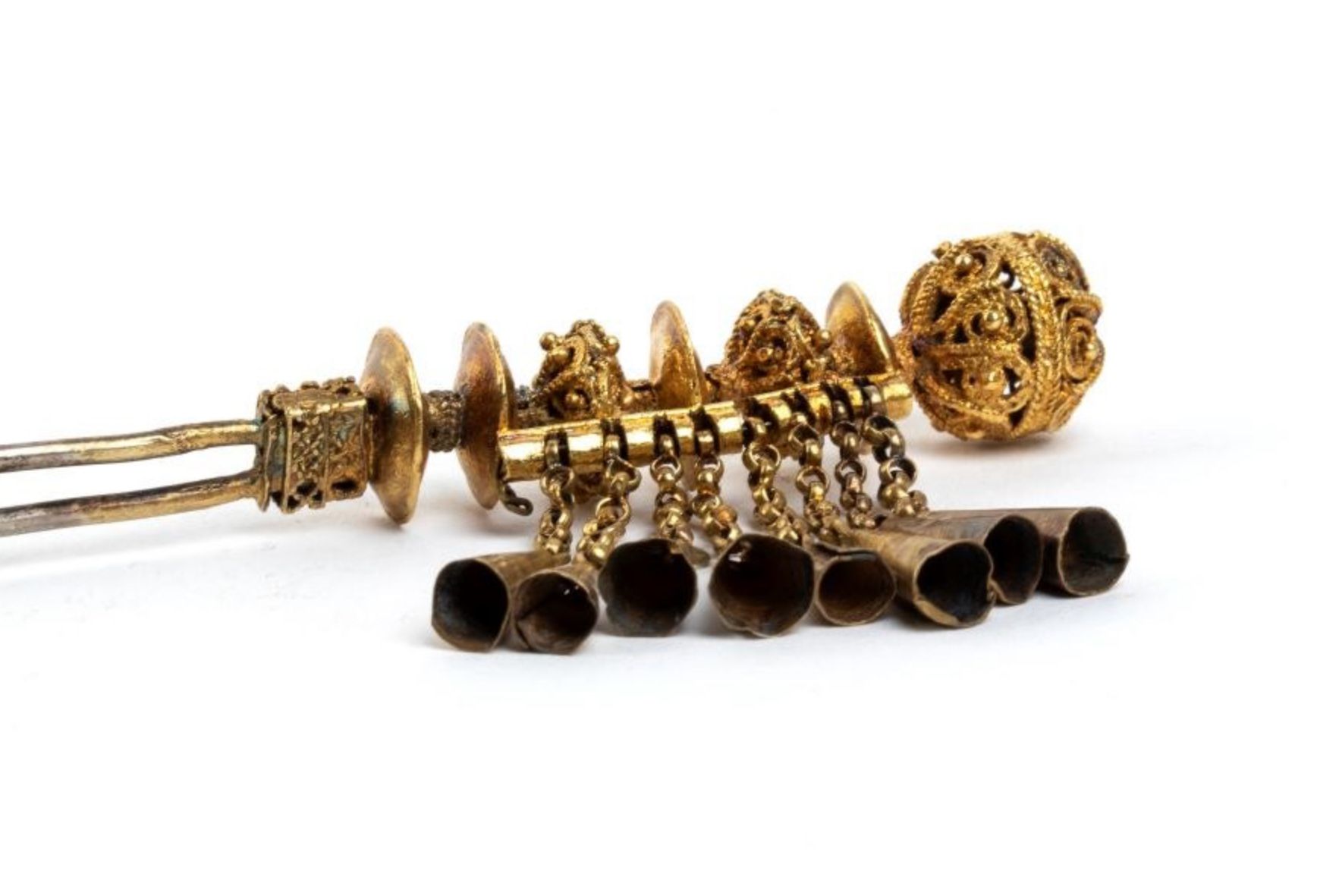Cultural Restitution
SHARE ARTICLE
Jesus College, Cambridge's return of a Benin Bronze statue of a cockerel to the Court of Benin is a prompt and effective response by a British institution, committed to engage in a rigorous investigation of links with colonisation and the slave trade.
It marks a striking contrast with the Benin Dialogue Group, the consortium of European museums that has spent over a decade negotiating with the Benin Royal Court, representatives of the Edo State government and Nigeria's National Commission for Museums and Monuments over the future legal ownership and display of thousands of objects, looted by British forces and administrators in February 1897 and now residing in numerous public collections in the UK and around the globe.
Driven by changing attitudes towards the legacy of Britain's imperial past, Jesus College set up their own Legacy of Slavery Working Party (‘LSWP’) in May 2019. By November, they'd already published their first Interim Report setting out the scope, timing and measurable outcomes of their project. Among other things, these included the restitution of objects and the funding of research into the history and legacy of slavery.
During the course of this work, their attention was drawn to a bronze statue of a cockerel, known as an 'Okukor'. It was identified as one of the thousands of objects looted from the Oba’s Palace when British forces led their ‘punishment raid’ on Benin City in 1897. More than twenty such cockerels were seized by the British during the raid. This particular bronze cockerel was gifted to the College in 1905 by George William Neville, a shipping agent and banker living in West Africa. On arriving at Benin City on 1st March 1897, Neville was able to grab a large hoard of Benin treasures, clearly feeling entitled to grab and return home with whatever he wanted.
Two Cambridge students, Amatey Doku and Ore Ogunbiyi, correctly identified the origin of the cockerel in 2015 and decided to launch a student campaign to return it to Nigeria. It took three years for their demands to be granted and just two months for the new Master, Sonita Alleyne, to conclude the bronze "is not, and never has been, owned by the College".
Detailed arrangements for its return to Edo State in southern Nigeria have not yet been finalised but returning it to the Court of Benin now required "immediate attention", said Chair of the LSWP Dr Véronique Mottier.
The College’s decisive action is impressive compared with slower progress by the Benin Dialogue Group.
Critics of returning Benin works of art to Nigeria often point to the scale of thefts that took place during the 1950s and a poor record of management and security in Nigerian national museums. However, the Edo State Government are proposing an alternative solution by opening a brand new Royal Museum in Benin City. This solution could unlock the stalemate that has ground the Benin Dialogue Group into inaction. Its completion could also reunite and lead to the return of some of the most significant works of Benin art - arguably the most important artworks ever made in sub-Saharan Africa - in a secure museum with high environmental standards.
However, the new museum's proposed completion date is still fluid. Construction has not commenced and a feasibility study is still to be undertaken. For this plan to succeed, they also need the co-operation of members of the Benin Dialogue Group, which represents the leading museums in Austria, Germany, the Netherlands, Sweden and the United Kingdom, where many of the works are currently located. This Group needs to be satisfied that the 'dark age' of Nigeria's museums will not be repeated and objects they return will be secure.
According to a press statement made after the latest meeting of the Group, held at the beginning of July in Benin City, a sharing of information about their collections has been arranged, ‘as a basis for developing content, training, joint activities and initiatives to facilitate the creation of the Royal Museum’.
But while they've agreed to cooperate with a permanent display of objects involving three-year loans, the issue of transferring legal title still remains unresolved.
‘There are national, international and institutional legal complexities that govern issues of return and restitution’ according to the press statement, ‘particularly as member museums are from different countries and jurisdictions with different laws and regulations’.
So, it’s not just the Sarr-Savoy Report with its uncompromising recommendation to return tens of thousands of works of art to sub-Saharan countries that has stalled. Legal complexities are again being cited to avoid taking the more courageous step of returning some if not all of this important cultural heritage to where it belongs.
While the restitution of the most significant objects, seized as a result of armed conflicts before 1970, is not presently included in existing cultural protocols and UNESCO conventions, further progress may involve national governments taking their own initiatives. Such a step may be closer than any new international convention and may yet outpace the discussions of the Benin Dialogue Group, which otherwise seem unable to overcome these legal complexities.
Photo: A Benin Bronze statue of a cockerel
Courtesy of Chris Loades
After this was written.......
A press statement published by the Benin Dialogue Group's Steering Committee on 23 March 2021 reports that while all members of the Group have agreed to support a major reunion of Benin works of art in Benin City (described as a condition of being in the Group), "conversations are developing at a different pace in the various countries for initiating permanent returns".
More News




